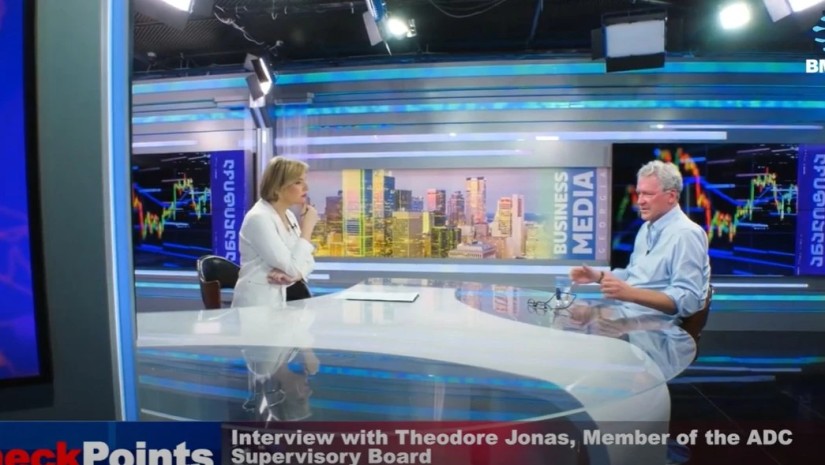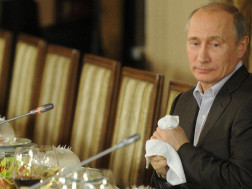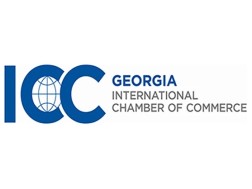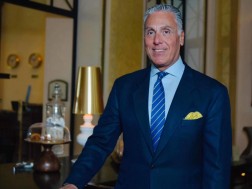The International Court of Arbitration of the International Chamber of Commerce (ICC) denied Anaklia Development Consortium’s (ADC) claim against the Government of Georgia.
The plaintiff tried to “recover the value of the investment of ADC and its investors following the Georgian Government’s January 2020 termination of the investment agreement with ADC to develop the Anaklia Deep Water Port,” the Supervisory Board of the ADC said in a statement on July 30. Details about the decision and the arbitration proceedings are confidential.
Prime Minister of Georgia Irakli Kobakhidze reacted to the decision of the Arbitration Court, stating that “Georgia came out the winner for one simple reason – the state always follows the rules when it acts.”
Justice Minister of Georgia, Rati Bregadze also reacted to the decision, stating that “the arbitration fully shared the legal arguments and evidence presented by the Ministry of Justice of Georgia and determined that in spite of numerous postponements of the deadlines set by the Georgian government for obtaining financing for the construction, the investor was unable to fulfill its obligation entirely due to its own fault”.
“…The Government neither directly nor indirectly hindered the investor to carry out the project,” Bregadze added. According to the Minister, “the arbitration confirmed that the Georgian government terminated the investment contract lawfully”.
The Justice Minister added that the claim of the plaintiff to receive the compensation of USD 1.5 billion was “completely rejected”. According to him, on the contrary, the plaintiff was obliged to pay USD 650,000 to the Georgian government.
The Checkpoints sat down with Theodore Jonas, Business Lawyer and the member of the ADC Supervisory Board for the response.
Mr. Jonas, what is this 650 thousand USD that the government keeps mentioning saying you have lost and you have to pay this amount to the state budget ?
Both parties had to advance 650 thousand dollars each to the ICC as payment to the arbitrators as their salary and as the payments for the ICC. We made an advance of 650 thousand dollars. Georgian government made an advance of 650 thousand dollars. The arbitral tribunal said that because we didn’t succeed in our claim, we had to pay 650 thousand for the Georgian government that they paid to the arbitrators salaries and to the Institute. So, that means that we are going to reimburse the Georgian government for the 650 thousand dollars. But it’s the same as if we had to pay it to the ICC instead of them. So, when he says it’s a payment to the budget, he’s lying because in fact it is a reimbursement to the government for the money that they have already paid to the ICC. The important part here, Elene, is that 650 thousand dollars is a tiny fraction of the legal costs of the government in the case. I’m not allowed to say that number. The only thing I will say that it was many millions of dollars. It was twice as much as our legal fees and costs. Usually the winning party will receive all of their attorneys’ fees and costs, which in this case was many millions of dollars. The tribunal ruled that this case was so close and our case and our efforts were in such good faith and so thorough that there was no reason to make us pay government’s legal fees. Not, what’s important about that is it shows that when the government says that the tribunal agreed with the government’s case down the line and that the tribunal dismissed all of our arguments, that is a lie. They are continuing to misrepresent what was in the opinion. The tribunal said this case was so close and we respect the efforts of the claimants – us – we are not going to assess the legal fees on them. So, let me just tell you that 650 thousand that we will pay to the budget to compensate to what it paid to the ICC is a very small fraction of the government’s legal fees.
So, you are saying that even though the ADC lost this case, it is still fair for the taxpayers to cover those costs?
Well, it’s fair because the government was representing the taxpayers. It’s the Georgian government that made the decision to terminate the investment agreement. It’s the Georgian government that made the decision to not engage in settlement discussions with us so that this problem and the dispute could have been solved outside arbitration. So, instead of working it out outside the arbitration, where they would not have run up this large number in legal fees, instead, they burned up very large amount of money fighting this case. And after they burned up the taxpayers’ money fighting against us, which was something they just didn’t have to do, here we are still sitting with no Anaklia Port, and also no deep-water port at Poti, and it’s really impossible to talk about the Anaklia situation and the Anaklia case without addressing Poti as well.
But what about the trust of ADC? What about the arguments that ADC during these years? The outcome is still the fact that you lost the case.
Correct. The interesting thing is and the surprising thing is that the majority opinion actually does not deny the arguments that we made about the government’s misconduct. It doesn’t deny that. So again it’s a lie when the government official says that they rejected all of our arguments. They absolutely did not. They rejected two important arguments. They said, okay, maybe the government acted very badly, maybe the government acted even in bad faith, but that was not the cause of the project’s failure. Causation is very important in law.
What was the case then?
According to the tribunal, the cause was the government set up difficult, even impossible tender conditions to begin with and that we were foolish, or we took the risk of assuming those conditions. This is what’s so strange: the government in 2015-2016 designs the tender, invites participation, negotiates with us and signs the contract with us and says, we’re back in Anakla Project, but their defense in arbitration was they shouldn’t have signed it in the first place, they were stupid. they should never have done a deal with us. And we always thought, what a crazy argument, they involve us in this project and now they’re saying that we should have never done it in the first place. But essentially the tribunal adopted that argument and said that we assumed the risk that the government had not given us exclusivity, therefore, Poti could develop competing deep-water port, which would ruin equity investor financial interest in Anaklia. The cause of the project’s failure was nothing that we did – in fact the tribunal expressed its respect to all our efforts to get the project built – but that there was nothing that we could do and nothing that the government had to do, provide a guarantee, etc. for the project to succeed. As long as APM Terminals continued to have the right to build a deep-water port at Poti, and the government was not restricting them from doing that in order to promote Anaklia, there was a market risk that nobody could get passed. The interesting thing is that market risk still exists. To this right now the government has retendered Anaklia and has given to these Chinese companies and yet, APM Terminals is still saying, they are going to build a deep-water port at Poti. Those Chinese investors – who I have no affection for – should be saying to the Georgian government, wait a minute, what screwed the Anaklia project before is that you didn’t give them exclusivity, you didn’t sideline Poti, you still haven’t sidelined Poti. This is very important: The project is as likely to fail now with the Chinese investors as it was with us, because Poti is still a competitive market threat that’s keeping the other investors away. And the second point: The reason that IFIs wanted a guarantee was exactly because of this unknown risk on Poti and I have heard that Chinese investors are also asked in for a guarantee and even a bigger one than we asked for. So, we’re in a situation where the government has in no way solved all of the market conditions and structural conditions that the arbitration panel said was the reason why this project failed. The government hasn’t solved them, and we don’t know whether APM Terminals will really build a deep-water port at Poti. So, here we are sitting, government had killed the ADC project, the government has not created the conditions for the Chinese project to succeed, and we don’t know whether the APM Terminals will build the deep-water port. So here we are years and years later with no deep-water port on Georgia’s Black Sea coast and that is a huge cost for this country’s economic development and jobs.
PM Kobakhidze mentioned that the government gave you too many chances for the ADC project to work ..
The government did do a lot to support the project until Ivanishvili fired Giorgi Kvirikashvili in May 2018. As we have said, Ivanishvili started to push the Poti project instead of Anaklia from late 2017. And when he officially took power as a Chairman of the Georgian Dream Party in May 2018, he fired Kvirikashvili and the whole tone of the government towards the project changed at that point. Yes, there were significant support from the government until essentially the Spring of 2018, and then from that point we start to see the major interference in the form of granting a permit to APM Terminals to expand Poti Port, which freaked out all of the investors ..
But the main thing here is how was that communicated with the Arbitration Court. Did they differentiate between these nuances that you are telling us?
This was a huge and complicated arbitration case. That’s why it took four years. The decision took one year to issue. There is a dissent in the case: it’s two to one. The opinion is extremely long. There were thousands and thousands of pages of documents, testimonies, expert witnesses, very long period of hearings, very thorough process. So, absolutely, all of our evidence of the government’s misconduct and things that I’m telling you, which what we have also said publicly, that was all put into the arbitration in a proper evidential form and of course, the government did the same thing from their side. The government was very well and very professionally represented as were we. It is very hard for us to understand how the tribunal could have heard and seen all of that evidence , and basically agreed that the government was not supporting the project; agreed that the government was at the same time promoting the Poti Port project; agreed that that looked like bad faith - but nonetheless, on the narrow words of the contract, we assumed the risk that was a technical issue and we had no right to complain. The dissent disagreed with that very strongly and said that the government’s conduct undermined the contract with us from the very beginning, was bad faith from the very beginning, and he saw it as a breach of the contract creating conditions that were impossible for us to perform.
Ted, you mentioned during the press-conference that the government officials negotiated with you the settlement of the dispute – why did you mention that and was it before or during the court
Both.
And what were conditions if that can be made public ..
Again, this is a little bit complicated because of the confidentiality rules. What I can say clear from the confidentiality, when I came on board in August 2019, until we filed the case end of July 2020, 4 years ago, we continued to offer, bring investors, make proposals for settlement discussions. Government was absolutely not interested. so we had no choice but to file the arbitration. Once the arbitration started, in approximately late 2020, the US Ambassador Kelly Degnan encouraged the Georgian government to have discussions with us about settling the dispute. She played a very constructive role, Kelly Degnan. We began discussions. I met with PM Gakharia and I had a video-meeting with Garibashvili when he replaced him. Natia Turnava who was the Minister of Economy was designated to carry out these discussions with us. The discussions with Natia Turnava were extremely constructive meaning that the two or three issues that the government had said - we can’t solve these questions, it’s not up to us to solve these questions and that’s why we don’t have to provide a guarantee, we don’t have to give you an exclusivity from Poti Port, and that’s your tough luck – all those issues were on the table for discussions with Natia Turnava and all those issues were actually quickly and easily agreed. She was, however, stopped. All I can say is that we had an agreement on how we were going to proceed during the summer of 2021 in those settlement discussions that the government than did not do what it said it was going to do and the discussions were stopped. Settlement discussions are normally confidential in the sense that they cannot be used in the arbitration proceeding. So, we were not able to talk about this during the arbitration proceeding but now the arbitration proceeding is over and those settlement discussions have no influence on the result of the arbitration. But the government says crazy things. Papuashvili’s speech [Chair of the Parliament] was a speech of an insane person or the person who has conspiracy theories on his mind. When they say that we were trying to grab the money, we wanted a 1.5 billion dollars, this was a fraud scheme against the government, they are lying. They know that’s not true. Natia Turnava knows very well that that’s not true. They know that the actual number of damages or lost profit that we were asking for was 1/3 of the number that Bregvadze [Justice Minister] mentioned.
And the Deputy Minister reiterated that same number ..
Either the lawyers are not doing their job informing them or they are lying. But more than that, I said to you on your TV show, I said to other journalists on their show, and I said to Natia Turnava in settlement discussions what we are talking about is the investment amount. The investment amount of 79 million dollars. That’s the amount that the ADC invested in building the Anaklia project. That number is audited and that number was accepted by the Ministry of Infrastructure as our valid expenses. For the government to now say things like, they put in 3 million, they put in 15 million, it’s more lying to the Georgian public. They know and it’s been discussed in every forum that we had to ask for lost profits because that is the normal request in a breach of contract case like this. But what we are after is to recover the investment and that’s a negotiable number but they have always known that what we were after was the 79 million dollars that was the amount of investment which was a negotiated number. But there was never any desire to pull money out of the budget. Not only we were looking for the investment money and not the a larger number, we also did not want to receive it in cash. We always made that clear. We don’t want 79 million dollars out of the [state] budget, what we want is for the Georgian government to find another investor, find a majority investor and either we take an interest in the project, equity interest proportional to our investment or that investor pays us off.
What does it mean in your statement that you are disappointed with the decision? Overall, is it a fair decision or not? Do you trust the court?
Do I trust the court? Yes, I trust the court. It was a professional good panel. There is no guarantee one is going to win a law case. I have always said this was a hard case. It was a 50/50 case because the contract was very tough on us in terms of shifting the risk on us. On the other hand, the government’s behavior was awful. And we have documented that the government’s behavior was bad. We could show that the government did not support the project. Our theory of the case was that the government’s conduct is so bad that under Georgian law you have to find that they have breached the contract by their conduct. And the government’s position was something not like the Georgian law position but more I would say English law saying that well, the problem is you accepted the risks and we had no obligation to help you. We think it’s strange, we disagree with the decision and again, the dissenting arbitrator absolutely makes this case which is that it’s very weird for the majority to say that we can acknowledge that the government engaged in all this misconduct, but even if it was in bad faith, they didn’t have the good faith obligation to help the project. So they took this very narrow view of the contract. Again, there was this causation issue. Look, when I look at this case and look at this case objectively, there was essentially a pathway for the government to win and there was a pathway for us to win on the law and two of the arbitrator agreed it was the government. That’s the way it is. It was always a tough, and a close and difficult case. The dissent points it out and we would point it out that they did not adequately consider the reality, the real context of what was going on, the importance of the government support in a project like this, so there were factors like that.
From this standpoint, was it right for the ADC to create all this buzz and to create the expectations that the whole geopolitical context of Anaklia Port project would be examined at the arbitration court?
First of all, they are there to look at the law. They are not there to make political decisions. I never expected – nobody on our side expected – that arbitration panel would rule in our favor because they saw this as representing the West and they saw the GD representing Russian interest or something like that. We’re lawyers. We’re professionals. That’s not the way you argue the case.
So that wasn’t in the case?
We had to explain how did it happen that the GD government started out supporting this case and then stopped supporting it. Nobody actually still knows the answer to that question. Was it Russian pressure? We said, yes, it might have been the Russian pressure. You and I have talked before that Roman Kakulia, the Chairman of the Economic Committee in January 2020, GD senior parliamentarian said in a TV interview that Bidzina [Ivanishvili] did it because of Russian pressure. So, there was absolutely evidence including from GD’s own politicians that Bidzina was protecting Georgia from Russian pressure by killing this project. But there are other theories what Bidzina’s interest was – he didn’t like Mamuka [Khazaradze], He didn’t like Kvirikashvili [ex-PM]..
Overall, the outcome is what it is ..
The outcome is what it is. I want to emphasize something: All this stuff that we are talking about, I’m sorry, is not that important in the public sphere. What is important in the public sphere is that this project still has not been built, and the government is in an absolute mess today in its policy about ports.
















